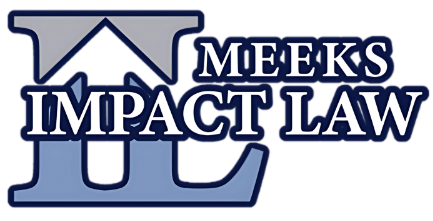What SB 68 Means for You
(Updated June 10th, 2025)
Georgia’s 2025 Tort Reform Is Now Law. Here’s What It Really Means for You:
In April 2025, Georgia Governor Brian Kemp signed Senate Bill 68 (SB 68) into law. Promoted by corporate lobbyists and insurance companies as a path to "fairness" and "cost stability," this sweeping tort reform package changes how injury cases are handled across the state.
But while the bill may help insurers and large companies limit their financial exposure, for Georgia families, small businesses, and injury victims, SB 68 creates real roadblocks to justice.
Whether you were hurt in a car crash, suffered a fall due to unsafe conditions, or were the victim of a violent crime on someone else’s property, these new laws could affect what evidence you can show, how your case is heard in court, and how much compensation you can recover.
You can read the full text of Georgia's SB 68 here: https://www.legis.ga.gov/legislation/64779
Key Changes Under Georgia’s 2025 Tort Reform (SB 68)
Bifurcated Trials (Section 2-1)
Parties in a civil case can now request separate trials for:
- Phase One: Determining fault and liability
- Phase Two: Determining damages (if fault is found)
- Phase Three: Determining punitive damages and attorney’s fees (if applicable)
Impact: Victims and experts may have to testify multiple times, increasing emotional trauma and extending the time and cost it takes to resolve a case.
Collateral Source Rule Changes (Sections 3-1, 3-2)
Defendants can now introduce evidence of:
- Amounts actually paid
by insurance or other third parties (instead of the full amounts billed).
Impact: Jurors may reduce awards based on insurance discounts, punishing responsible people who maintained coverage.
Seatbelt Evidence Now Admissible (Section 4-1)
Evidence of not wearing a seatbelt can now be used to argue:
- Comparative or contributory negligence
- Assumption of risk or failure to mitigate damages
Impact: If you weren’t wearing a seatbelt, your compensation could be reduced, even if someone else caused the crash.
Limits on Pain & Suffering Arguments (Section 5-1)
Attorneys can no longer suggest specific dollar amounts for pain and suffering unless supported by evidence admitted at trial.
Impact:
Juries may undervalue the true emotional and human toll of injuries without a clear framework.
Negligent Security Cases: Stricter Standards (Sections 6-1 to 6-9)
These changes shift the burden of proof to injured victims:
- Property owners must have had actual knowledge
of a prior similar incident or imminent threat.
- Juries must
assign fault to criminal perpetrators. If not, the court must order a retrial.
- Victims who were trespassing or committing crimes are barred from recovering.
Impact: It is now significantly harder for victims of shootings, assaults, or other crimes on unsafe properties to recover damages.
Other Procedural Hurdles:
- Motions to Dismiss (8-1):
Defendants can file for dismissal before answering, pausing discovery.
- Voluntary Dismissal (9-1):
Tougher restrictions on dismissing and refiling.
- Attorney Fee Limitations (10-1):
No double recovery under multiple statutes unless specifically authorized.
Impact: These rules make cases slower, more expensive, and more complicated for everyday Georgians.
Who Really Benefits from SB 68?
SB 68 was sold as a way to reduce frivolous lawsuits and stabilize insurance premiums. But here’s the truth:
- Insurance Companies
save money on payouts while premiums remain high
- Corporate Defendants
face less accountability and fewer consequences for unsafe conduct
- Victims and Families
carry the burden of navigating a harsher system with fewer protections
Data from other states shows that similar tort reforms do not reduce premiums. In fact, Georgia insurers have failed to provide any data to justify the changes. Meanwhile, profits in the insurance industry have hit record highs.
How Meeks Impact Law Fights for You Under the New Laws
Despite these new obstacles, you still have rights-and we’re here to protect them.
At Meeks Impact Law:
- We build strong cases early with the evidence needed to overcome new legal restrictions
- We stand up to insurers and corporations trying to delay or deny legitimate claims
- We prepare every case with compassion, strategy, and resolve
In a legal landscape that now favors corporations over communities, having the right attorney matters more than ever.
What You Can Do
- Stay informed
by reading the full SB 68 bill text here
and reaching out to us with any questions.
- Support organizations
like the Georgia Trial Lawyers Association (GTLA)
working to preserve access to justice.
- Know your rights.
Don’t assume you can’t recover what you deserve, talk to an attorney who understands the new laws and is ready to fight for you.
Injured in Georgia? Don’t Wait for What You Deserve.
Navigating a personal injury claim in Georgia is now more complex. But you don’t have to do it alone. Call Meeks Impact Law at 678-341-5117 or fill out this confidential consultation form and a member of our team will reach out to you.
The fight for justice doesn't end here.
Georgia Tort Reform (SB 68) Summary Table
| Area of Reform |
Summary of Change |
Impact on Injury Victims |
| Bifurcated Trials |
Separates trials for liability and damages |
Longer trials, repeated testimony, more emotional toll, delayed justice |
| Collateral Source Rule |
Defendants may show insurance paid amounts |
Reduced compensation for insured plaintiffs, just for doing the right thing |
| Seatbelt Evidence |
Admissible for comparative fault |
Recovery may be reduced if seatbelt wasn’t used |
| Anchoring Arguments |
No dollar amounts without evidence |
Juries may undervalue pain/suffering damages |
| Negligent Security |
Higher burden of proof, mandatory fault for criminal actors |
Harder to recover after certain crimes on unsafe property |
| Motion to Dismiss |
Pauses discovery before answering |
Delays and early dismissal risks |
| Voluntary Dismissal |
Stricter refiling rules |
Less flexibility for correcting case issues |
| Attorney’s Fees |
Limits on stacking fees |
Smaller net recoveries for some plaintiff |
